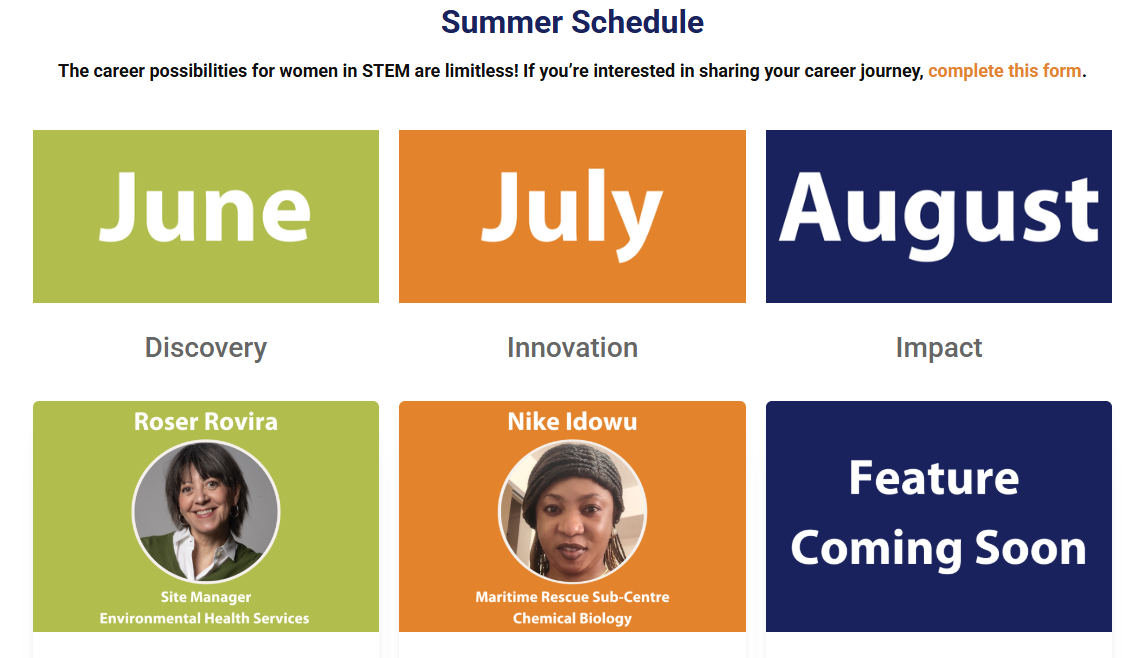Three Ways to Evaluate STEM Learning Ecosystems
Welcome to Insights & Opportunities: A Hub for Informal STEM Education! Insights & Opportunities is a twice-monthly newsletter for educators, administrators, legislators, and advocates who recognize the importance of informal STEM learning.
This newsletter is brought to you by me, Sarah Dunifon, and my team at Improved Insights. I’m a long-time STEM educator, researcher, and equity advocate. Along with my team, I now work on cutting-edge informal STEM learning research and evaluation.
Each edition of this newsletter offers exciting insights, resources, and opportunities for informal STEM learning professionals, including funding, jobs, professional development, informal STEM learning research, evaluation tips and resources, and so much more! We hope you find it valuable. Now, let’s get started.
Three Ways to Evaluate STEM Learning Ecosystems
In our last edition of Insights & Opportunities, we reviewed the similarities and differences between STEM learning pathways, pipelines, and ecosystems. In this edition, we'll discuss three possible approaches for evaluating STEM learning ecosystems. To read the full article, check it out in our Insights. In the meantime, here’s a taste:
-
Views on Science and Identity
Perhaps the most interesting part of the STEM learning ecosystem is the informal STEM learning space (okay, I might be biased). In informal learning spaces there are often less direct connections between STEM learning experiences and what learners perceive to be “learning” or “science.” A visit to the zoo will likely feel less pivotal than a formal learning experience, like a biology class, due to the less structured, more learner-directed nature. Bell et al. (2013) have argued that the images learners hold about science and about themselves will vary based on what they encounter. Therefore, it might be useful to measure what learners count as “science,” their reasoning for including or excluding experiences in that category, and how this reasoning may influence how they see themselves (perhaps, in a simple interpretation, how much they see themselves as “scientists”).
To measure these constructs, you might employ a method like a card sort activity. Here, each card depicts a science-associated activity and participants are asked to sort these cards into categories. You might choose “science” and “not science” or something more complex. To take this a step further, you could even turn this into a group exercise where learners work together to depict different experiences on the cards and discuss to which category each card belongs.
In the article described earlier, the authors used a Science Activity Task method where ‘participants rated the frequency of the activities that they did and then reflected on how these activities connected to scientific knowledge, practices, and tools’ (Bell et al., 2013, p.133).
To read the full article, check it out in our Insights.
60-Second Suggestions
Here are a few of our favorite things this month, usually pertaining to informal STEM education and evaluation, but occasionally some fun personal stuff, too.
June is Pride Month! This article by Jen Tuttle Parsons published in 2024 discusses the need for representation of LGBTQ+ scientists in informal learning environments through the lens of her experience with the New Science exhibit at The California Academy of Sciences and her related research. Parsons highlights the unique opportunity that informal STEM education offers to address systemic inequity, and points institutions to evaluation of their exhibits and policies to uncover insights and guide them toward equity and access.
The North American Association for Environmental Education (NAAEE) has recently updated their eeRESEARCH Library. You can now search for articles by key topics in environmental education research and evaluation, including informal learning, conservation, water and marine education, and others. This is a great tool for anyone looking for open-access research articles related to environmental education.
The Association for Women in Science (AWIS) recently launched their Summer of Science landing page. The page will spotlight free virtual film screenings all centered on scientific exploration, and each week from June through August will feature women who work in various STEM-related careers, sharing about their personal STEM journey, their career today, and their advice for future scientists.
Opportunities
Check out these new opportunities for the informal STEM learning community.
Funding:
2025 Annual Grant Cycle, Ciresi Walburn Foundation, variable. Nonprofits, K-12 schools, and higher education institutions in Minnesota are invited to apply for funding in five key areas, including the expansion of science-based literacy instruction, high-quality childhood learning opportunities, equitable pathways to in-demand careers, and high-quality tutoring programs. Letters of inquiry are due July 11, 2025.
2025 Grant Cycle, The Detwiler Family Foundation, $10,000-$50,000. Nonprofits in areas of Pennsylvania, Montana, Georgia, Oregon, Vermont, and New Hampshire are invited to apply for funding to support education and afterschool programs for disadvantaged children, among other categories. Selected projects must be implemented by December 31, 2025. Applications are due by July 1, 2025.
2025 Grant Cycle, The Morris and Gwendolyn Cafritz Foundation, variable. Nonprofits serving the greater Washington, D.C. area are invited to apply for funding to support five program areas: education, arts and humanities, community services, environment, and health and wellness. Projects submitted in the education category may include both formal and informal learning opportunities. Applications are due July 1, 2025.
Career Pathways Grants, PGE Foundation, up to $25,000. Nonprofits are invited to apply for grants to support initiatives facilitating career pathways and increasing avenues to family wage jobs, entrepreneurship, and small business ownership. Priority will be given to organizations that center access to careers in the sciences, jobs in trades, and green sectors. Applications are due July 7, 2025.
Community Grants Program, Western Digital, up to $20,000. Nonprofit organizations and schools providing opportunities for underrepresented and/or underserved K-12 youth in STEM education are invited to apply for grants. Western Digital currently funds projects in the Greater Bay Area, CA; Orange County, CA; Boulder County, CO; El Paso County, CO; and Olmsted County, MN. Applications are due July 15, 2024.
Moonshot Awards 2025, Moonshot Platform, $5,000-$10,000. Young people ages 15 to 30 are invited to apply for a variety of Moonshot awards structured around the United Nations Sustainable Development Goals. The awards are divided into three main categories, Idea, Start-Up, and Non-Profit, all centered on youth-driven, early-stage initiatives that advance learning, health, art for humanity, AI for good, and borderless solutions. Applications are due July 15, 2025.
Jobs and Fellowships:
Executive Director, Audubon Community Nature Center (Jamestown, NY), $80,000. The Executive Director will lead the organization in overall leadership, management, and administration of activities and initiatives. This includes strategic planning, fiscal management, philanthropic efforts, and board recruitment and development.
Executive Director, Museum of Discovery (Little Rock, AR), $115,000. The Executive Director will build on the Museum's current operational and programmatic practices, continuing to grow the institution as a center for innovative learning in STEAM. They will drive philanthropic campaigns, encourage innovation, and expand the Museum's reach through new community partnerships. They will also serve as the primary representative of the Museum in the local community and beyond.
Exhibits Manager, Buffalo Museum of Science (Buffalo, NY), $50,000. The Exhibits Manager will play a critical role in designing, planning, and managing the upkeep, maintenance, and fabrication of exhibits. This includes the coordination and implementation of special projects and traveling exhibits, and the utilization of emerging technologies to enhance the impact of exhibits and the overall visitor experience.
Natural Science Specialist, Roper Mountain Science Center (Greenville, SC), $56,000. The Natural Science Specialist will instruct daily, standards-based lessons for elementary and middle school students, manage high-quality science programs for students, teachers, and the public, and creatively improve and expand programs through grants, donations, acquisitions, and community partnerships.
Programs Manager, Water Education Foundation (Sacramento, CA), $68,000. The Programs Manager will manage and expand Project WET, a K-12 water education program, and execute engaging events like water tours and conferences. They will organize and lead professional development workshops for educators, manage a statewide network of volunteer facilitators, coordinate program logistics, and support foundation conferences, educational tours, and water leadership programs. Applications are due June 17, 2025.
Professional Development:
AZA 2025 Annual Conference, Association of Zoos & Aquariums (AZA), September 13-18, 2025 (Tampa, FL). The Association of Zoos & Aquariums will host their annual conference in Tampa, Florida, from September 13-18, 2025. During the conference, zoo and aquarium professionals will explore ideas and best practices through more than 150 education program sessions, participate in round-table topic discussions, experience new technology, and more. Early bird registration closes August 15, 2025.
Connected Learning Summit, Connected Learning Alliance, October 5-10, 2025 (virtual). The Seventh Annual Connected Learning Summit is now accepting proposal submissions. The online conference will be held October 5-10, 2025, and will focus on digital technologies for learning, educational and commercial games, innovative tech-infused curricula, and theoretical and/or empirical exploration of digital media and technology for learning. Submissions are due June 23, 2025.
The Museum Summit 2025, American Alliance of Museums (AAM), October 15-16, 2025 (virtual). The American Alliance of Museums is now accepting case study proposals for The Museum Summit, a virtual event that will be held October 15-16, 2025. Proposals should choose between one of two themes: Mission, Values, and the Politics of Pressure, and The Next Era of Volunteerism. Case study presentations should be limited to 20 minutes with no more than two presenters. Submissions are due June 27, 2025, by 5:00 PM ET.
Webinar: What We Have Learned and Why It Matters, eeWORKS, June 18, 2025 (virtual). Join eeWORKS, a collaborative research project of NAAEE, Stanford University, University of California at Davis, and the University of Florida, for a webinar exploring how environmental education leads to positive outcomes in K–12 education, conservation, early childhood, positive youth development, community science, and climate education. Hear from experts in the field on what the research says about the value and impact of environmental education, and how you can support the work. The webinar will be held on June 18, 2025, at 3:00 PM ET.
Thanks for tuning in to this edition of Insights and Opportunities. While you’re waiting for the next edition, tell your friends! We appreciate you sending along a blog post you enjoyed, a job opportunity you think a friend should apply for, and resources you found valuable. Sharing this newsletter is the best way to support this work. Until next time - thanks!








